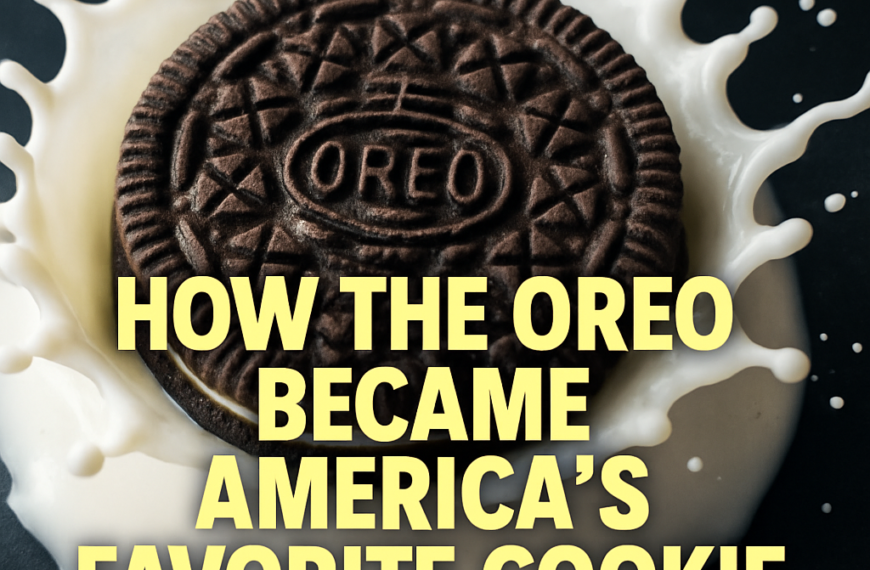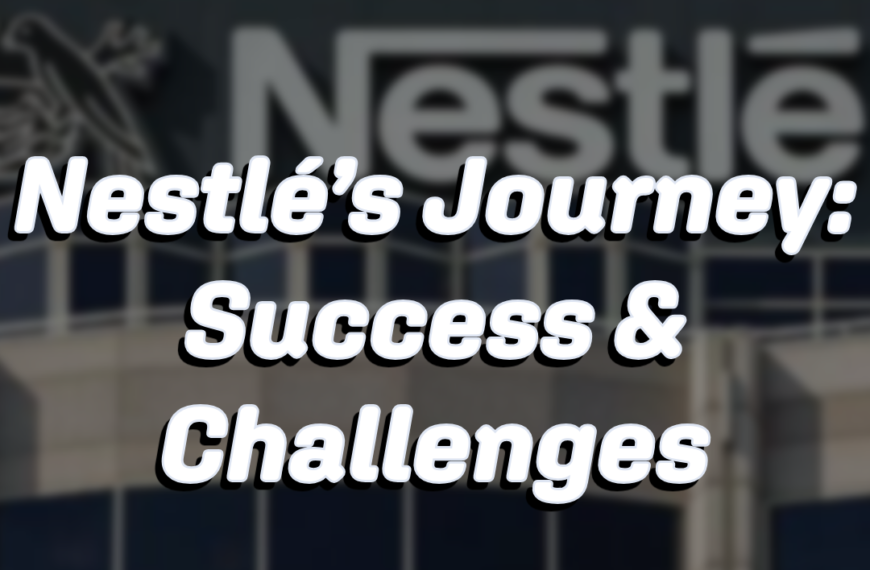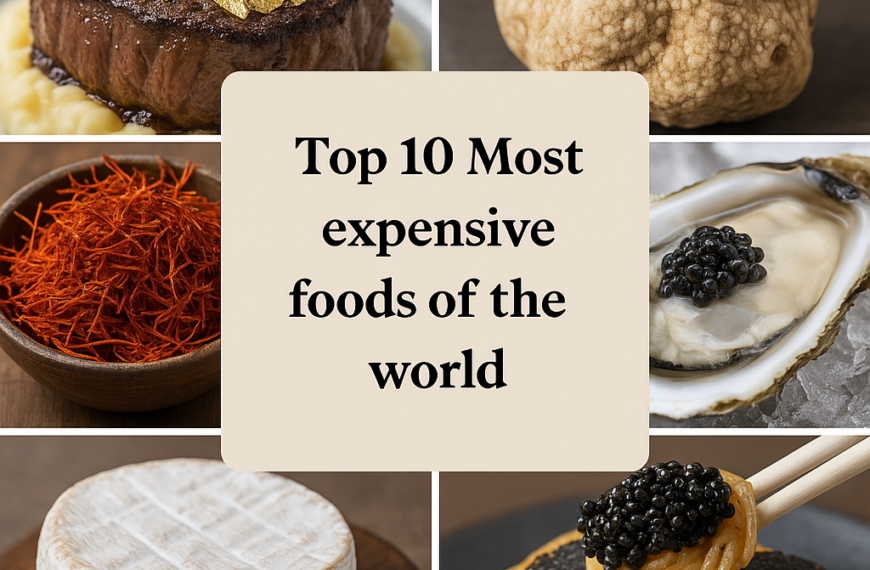In This Article
The food industry modifies rapidly during 2025 because technological innovation combines with changing consumer preferences and sustainability worldwide. Three vital factors within food production and distribution and supply chains undergo revolutionary changes during this year. Current food industry statistics indicates that producers integrate artificial intelligence solutions to their services while establishing plant-based dietary options since these modifications suit environmentally conscious tech-oriented consumers who prioritize sustainability.
The environment drives innovation since companies work to develop sustainable practices and decrease waste production. Search engine availability and artificial intelligence applications have transformed standard food distribution by becoming vital components that enhance online shopping and restaurant service. The rapid transformations demonstrate that the food industry acts as an innovation pioneer in resolving critical worldwide issues while following present-day developments.
These statistics about sustainable food industry trends provide new insights regarding the path the food world will take in the future regardless of your background involvement. We must look at numerical data that will define both 2025 and its future years.
Food Industry Statistics: An Overview
Global innovation together with sustainability efforts remains the priority focus of the food industry. Through 2025 the industry demonstrates the potential of technological advancements to merge with consumer demands and environmental awareness to transform an entire market sector. The food industry shows its transformation through statistics which lead to market redesigns direct consumer actions and the launch of sustainable practices.
The numbers reflect how the industry brings transformative value through the fast growth of plant-based foods together with restaurant operations using AI technologies. Statistical knowledge about the food industry gives us both contemporary insights and the future potential of this sector.
1. The total value of the global market dedicated to plant-based foods currently exceeds $74 billion
The plant-based food market has grown exponentially because it generated $74 billion in global revenue by 2025. More consumers select plant-based eating patterns because it offers both health benefits alongside ethical advantages and environmentally beneficial elements and social trends. People who occasionally choose plant-based alternatives instead of meat products known as flexitarians fuel this eating pattern together with vegetarian and vegan followers. Food companies together with startup enterprises dedicate substantial financial funds to research plant-based food development for better taste and wider accessibility.
Many houses use plant-based meat products with dairy-free cheese and protein-rich replacements as regular food components today. The growth pace of plant-based products has stimulated the development of precision fermentation and cell-based meat technologies along with other advanced solutions that enhance market progress. The plant-based food sector maintains growing influence within sustainable food industries because consumers have become more aware and these alternatives have become available everywhere.
2. 70% of Restaurants Use AI-Driven Systems

The food service industry operates under a transformative impact from artificial intelligence technology. AI tools have become standard for restaurants across the industry since 70% of these companies use them to automate inventory management and provide customized experiences as well as perform automated cooking procedures by 2025. These technologies improve business operations while better serving customers while minimizing food waste quantities.
The combination of AI systems enables organizations to evaluate customer choices and enhance menu suggestions and ingredient procurement efficiency and market pattern assessments. The incorporation of robotic chefs together with AI-based customer support systems is transforming restaurant operations at present. Businesses across all sizes of restaurants use artificial intelligence to maintain market competitiveness in this developing industry that demands efficiency and innovation. These technological developments play a crucial role in building sustainable statistics for the food sector.
3. Food Delivery Market Reaches $600 Billion
The market for online food delivery will reach approximately $600 billion during 2025. Consumer spending toward dining at home shifts because of apps together with delivery platforms which are now present everywhere while convenience continues to motivate purchases. Ghost kitchens represent restaurants existing solely for delivery service and these establishments have significantly driven market expansion during this period.
Customers benefit from improved logistics services and real-time tracking and AI-powered delivery solutions which enhance their delivery experience. The market has developed specialized segments which include gourmet meal packages and dietary meal plans to serve more diverse population groups. Cities continue to become faster-paced so the food delivery industry expands uncontrollably which positions it as a fundamental component of sustainable food systems.
4. 35% of Packaged Foods Are Now Gluten-Free
The gluten-free product market has evolved beyond its original market position. Processors label 35% of packaged food items as gluten-free during 2025 because people are increasingly mindful about dietary sensitivities and seek products without allergens. Consumer choices now focus on wellness along with food inclusivity because of an emerging trend. Major brands now change their products to fulfill these consumer needs by creating gluten-free snacks as well as entire meal options.
The development of gluten-free alternative flours consisting of almond, coconut and chickpea technology has advanced both nutrition and taste quality of these products. People with celiac disease lead the way in gluten-free consumption but health-focused consumers join them as they wish to try different dietary options. The extensive market acceptance demonstrates how customers shape current statistics regarding sustainable food industries.
5. Food Waste Reduced by 40% Thanks to Technology

The combination of smart refrigerators together with AI-based forecasting and blockchain used in supply chains has led to a 40% reduction in global food waste. Modern technology systems assist in monitoring inventory in more effective ways while extending product freshness predictions and achieving better food distribution across needy communities. AI programs have advanced to determine exact usage levels of produce by stores and restaurants which cuts down both overstock situations and food expiration.
Blockchain technology enables supply chain stakeholders to monitor processes better which enables them to discover inefficient practices and waste. NGOs along with governments work with technology corporations to create worldwide solutions for food waste reduction. The accomplishment demonstrates that technological systems play a essential part in developing environmentally sustainable food systems and defining sustainable food industry statistics.
6. Investment in Food Tech Startups Surpasses $20 Billion
The food technology startup industry maintains strong growth because investors provided more than $20 billion funding in 2025. These firms produce food and new distribution systems by developing cultured meat products and operating vertical farms. The investment market prefers new ideas which tackle climate change as well as food security and resource scarcity issues. The first benefit of lab-grown meat provides livestock farmers with an environmentally sustainable alternative solution and secondly vertical farming systems yield high agricultural yields by using minimal water and space resources.
The popularity of companies using artificial intelligence to develop customized nutritional applications for meal planning is increasing rapidly. Market investments confirm technology plays the central role in enabling sustainable business expansion. Reports indicate that sustainability takes a favorable turn in the food industry direction.
7. 60% of Consumers Prefer Locally Sourced Products
Local is the new global. Consumers focus on obtaining food from local sources because they find it fresher and it helps reduce carbon emissions and supports their local communities at a 60% rate. The new preference has motivated retailers and restaurants to establish partnerships with farms and suppliers operating near their facilities. People view locally sourcing products as better and more environmentally friendly since it matches the ethical priorities of present-day aware consumers.
People are participating in Community-supported agriculture (CSA) programs together with farmers’ markets because they want to maintain direct links between themselves and their food sources. This buying pattern goes beyond neighborhood purchases because consumers develop stronger awareness regarding food origins while learning about environmental consequences. The increasing numbers demonstrate that sustainability practices within the food industry have become crucial during this time.
8. Non-Alcoholic Beverage Market Grows by 10% Annually
The annual growth rate for non-alcoholic beverages amounts to 10% and includes mocktails and flavored waters together with functional drinks. Users have changed their beverage choices to support wellness-minded and lifestyle-friendly alternatives. The growing market demands have motivated brands to develop beverages with adaptogens and probiotics and natural flavorings.
Social events welcome diverse beverage choices as non-alcoholic drinks now accompany traditional alcoholic beverages. Adherents in this category mostly belong to younger age groups who seek balance as they pursue wellness. The non-alcoholic beverage sector is expanding rapidly because consumers increasingly choose beverages that align with healthier lifestyle approaches. The statistics concerning sustainable food in 2025 receive additional support from these market developments.
9. 80% of Shoppers Seek Sustainable Packaging

The requirement for sustainability has become mandatory for all food brands. The rise of shoppers adopting products with sustainable packaging will reach 80% by 2025 thus compelling businesses to access new green alternatives and decrease their environmental impact. Biodegradable plastics together with recycled paper and reusable containers represent mainstream items in the market.
Improvements in brand packaging design have occurred to create minimalistic aesthetics that minimize waste. Eco-friendly practices have gained increased consumer support because public awareness about sustainability continues to grow. Companies dedicated to sustainability authenticate their trustworthiness and player loyalty by prioritizing sustainability. Such rising demand serves as the main influence behind crucial sustainable food industry metrics.
Conclusion
The food industry of 2025 serves as a beacon of innovation, sustainability, and adaptability in the face of global challenges. The food industry demonstrates unprecedented development through groundbreaking plant-based innovations and AI control of restaurant workflows and increased focus on sustainable local ingredients. All data points in this analysis demonstrate important market movements while showcasing customer and business and government approach transformations. Food industry modifications represent forward-thinking initiatives instead of market-based responses that form a better food system which includes inclusion and efficiency alongside environmental responsibility.
Food technology investments combine with non-alcoholic drink popularity to demonstrate that the food industry follows multiple development paths. The professional food industry and observant consumers together with sustainable practice proponents can understand from this information what food production will become. The HungryJournal team steadfastly provides its audience with current breaking news alongside comprehensive examinations of revolutionary market movements. Join us as we track the food industry’s path toward creating both a healthier environment and a sustainable world.
















